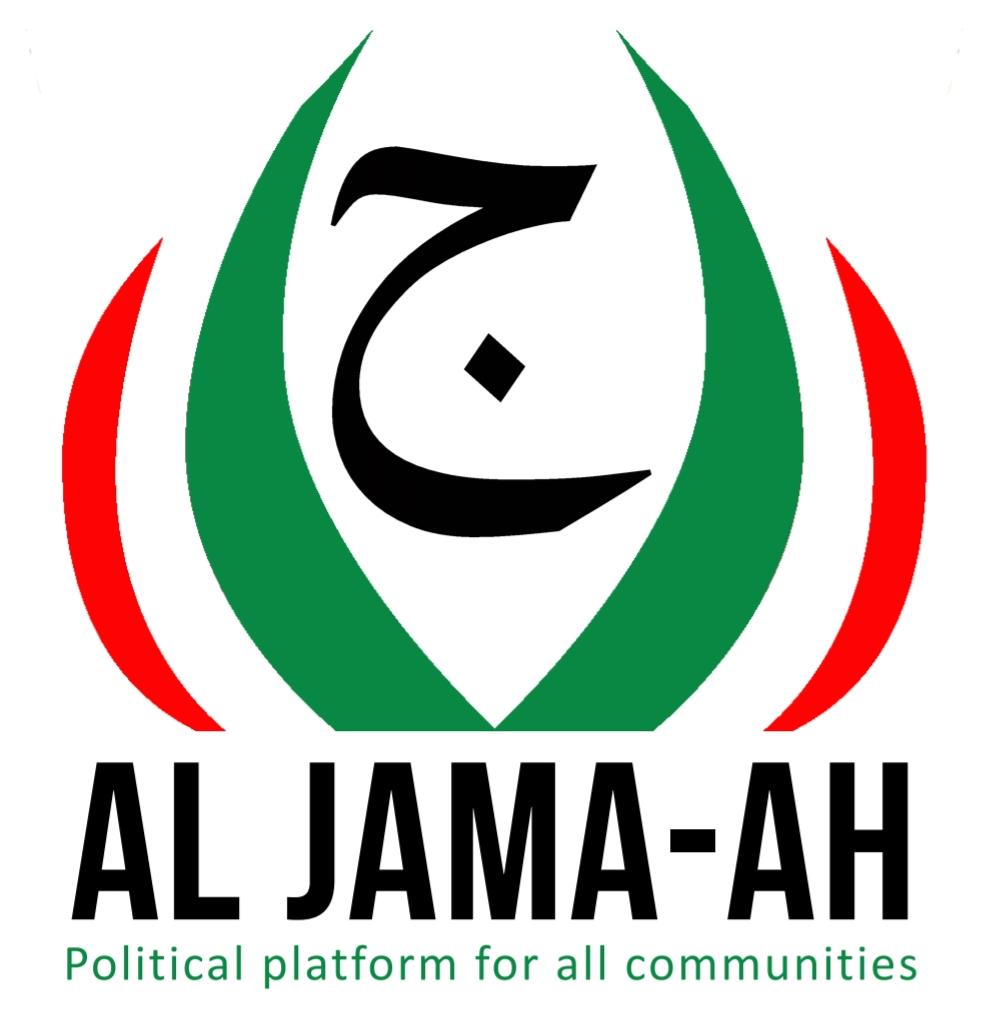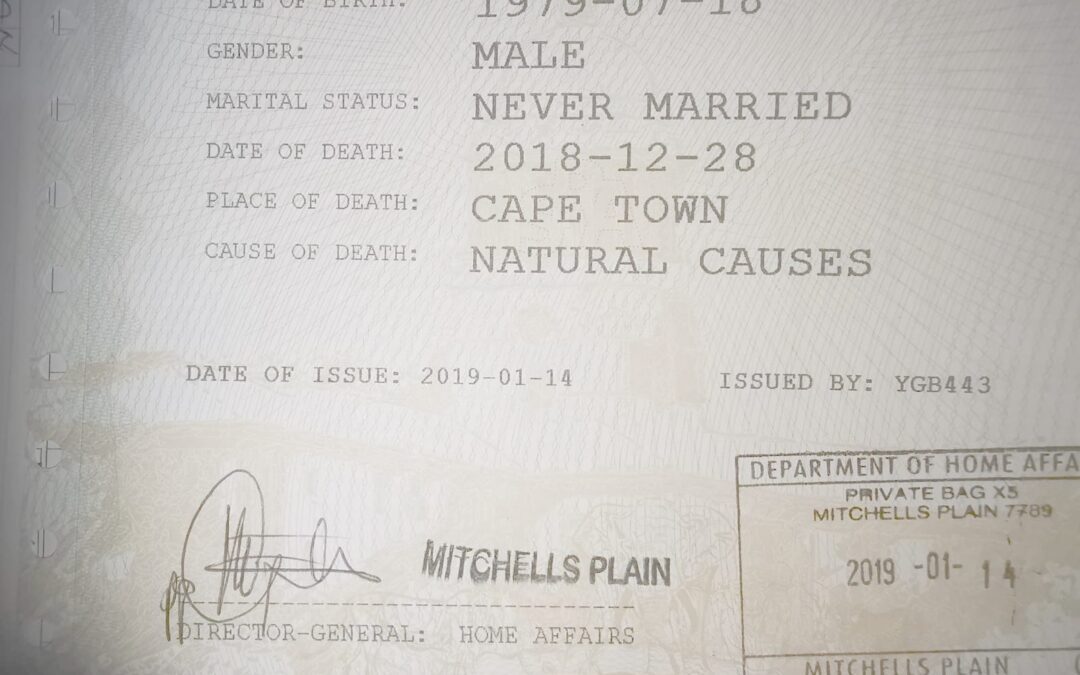Image: The death certificate of a Muslim deceased person states “Never married” despite the deceased person being married for many years according to Islamic rights.
Al Jama-ah, which voices its confidence in the South African democratic system despite its glaring shortcomings, is proudly committed to the Muslim faith. Armed with this, Al Jama-ah is further motivated by a comprehensive philosophy that is deeply embedded in Islam’s primary sources from which the party gains its inspiration. As a Muslim party, Al Jama-ah adopted a positive approach in engaging with its society’s socio-political, economic, and cultural affairs.
As part of Al Jama-ah’s mission, it committed itself to bring about constructive change and meaningful transformation; it pursued this path with the fervent hope that these would not only benefit the Muslim community that it represents but that it would profit others too; hence the adage: a political platform for all communities.
Over the years, Al Jama-ah has been making inputs via various platforms and it successfully managed to secure a seat in Parliament; being in this position, Al Jama-ah’s president, Hon. Ganief Hendricks, with the support of a team of councillors charted out ways and means to address Muslim matters. Since it remained passionate to serve the Muslim community (and others), it channelled some of its energies and resources to address sensitive concerns such as the recognition of Muslim marriages.
Even though much effort has been made since the time the late Advocate Abdullah Omar was appointed as our democratic country’s first Minister of Justice in 1994, the Muslim community has been unsuccessful to have their marriages recognized or a basic Nikah certificate issued by the state. This may be attributed to diverse factors and one of these was the impasse that has emerged because of unnecessary disagreements among the Muslim stakeholders.
The Muslim Judicial Council and the Jaamiats want codification and regulation so that they can be firmly in control of Muslim affairs in South Africa. There is an overwhelming rejection of this position and that is why the Cabinet shelved the old Muslim Marriages Bill. Al Jama-ah supports the position that there should rather be a focus on official registration after a Nikah and that we must not allow law makers to tell Muslims how to practice their Marriage laws. There are over 1000 marital dispute structures in South Africa and a focus should be to take them to the next level so that their determinations have legal muster. Muslim NGO’s like Gift of the Givers, Islamic Relief should set up a special fund to achieve this. The strong feminist lobby has successfully delayed progress while we acknowledge the right to contest patriarchy tendencies in many of these alternative dispute resolution structures. They should rather be part of these structures. This will help reduce gender-based violence by Muslim men against Muslim women. The silver bullet that may appease them is an aggressive Khutabah campaign by the Ulama that after a Talaq or a Fasaagh a very generous “gift” must be given to former wives. This will help soften the blow and match the proprietary rights that women are entitled to in terms of the laws of the land.
In the light of the Muslim community’s failure to realize this goal and the disappointment expressed by Muslim women for not being given the necessary protection by the South African legal system, Al Jama-ah took on this task; it did so to get the Muslim community out of this quagmire by using its parliamentary position to devise a Private Members Bill (PMB) on Muslim marriages and having it pushed through the parliamentary system.
Al Jama-ah’s legal team met with the Muslim Judicial Council’s Muslim Personal Law’s technical committee; this was headed by Dr Munier Abduraouf and Sheikh Igsaan Taliep. Along with them, they worked out a pathway out of the impasse as regards the way forward. Thereafter, Al Jama-ah’s legal team produced a draft of the PMB that had been shared with Muslim organizations for inputs and comments. The team adopted a minimalist approach asking for the judgement of Supreme Court of Appeal (SCA 18 December 2020) to be unpacked as part of an interim arrangement until the One Statute Act comes into play in 2024 (or perhaps later).
As soon as it is finalized, the PMB will be placed on Parliament’s agenda. While it is hoped that it will not face any needless hurdles, during February 2021, Al Jama-ah’s president, Hon. Ganief Hendricks asked Hon. Dr. Pakishe Aaron Motsoaledi, the Minister of Home Affairs, relevant questions related to the issue.
One of the two that he posed was: what prevented our government from affording legal recognition to Muslim marriages by using the same procedure that provides for the recognition of African customary marriages through the registration process in the department while permitting for the nikah certificate to be issued by an officiating Imam in the same way as the lobola certificate is issued by an African customary official such as an Induna?
Unfortunately, the Hon. Minister, who could have been sensitive to the issues at hand, simplistically replied (No. 1744) that the government had no powers to have Muslim marriages legalised; he conceitedly opined that this could not be done through the Recognition of Customary Marriages Act; an Act that was regulated by the Recognition of Customary Marriages Act, 1998. Well, the Minister’s response was in defiance of the later SCA judgement.
Now since this route was not considered nor tested, Al Jama-ah put forward the PMB as a tangible and practical alternative. Since it is using the Parliament as its vehicle, it has been lobbying support from the ruling party as well as other parties. Getting support from all of them would boost Al Jama-ah’s chances in having PMB approved and bringing relief to thousands of Muslim women who have been short-changed by our democratic system.
The MJC and the Jaamiats must show leadership and support this first step.
Visit Al Jama-ah’s website:https://www.aljama.co.za/recognition-of-marriage-bill/


